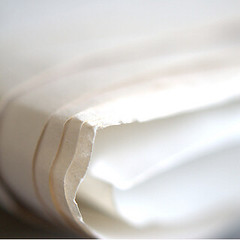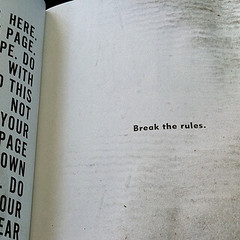1 Art
As legend has it, back in 1886 a New York journalist referred to the city of St. Paul as “another Siberia, unfit for human habitation in winter.” To refute the charge, Minnesotans put on another pair of wool underwear and crowned King Boreas and Aurora, Queen of Snows, to preside over the Winter Carnival. As if such events as a blanket toss and snow-shoeing were not enticing enough, organizers sought to prove the wintry delight of the land with snow and ice sculptures. Now a major highlight of the year–not just the cold weather months–the “coolest celebration on earth” features cultural and art events throughout the blustery arctic week.
Growing up in the area, I really thought there was little more winter-cool in the world than the ice sculptures. But when I saw these spectacular snow sculptures from Chinese artists (I want to call them Arctists), the very imaginative and respectable St. Paul show of my youth suddenly looked a little like the kiddie rides at the carnival. And these characters are working in -30 Celcius temps, which is just another ordinary day in South Dakota, but I don’t work with an ice chopper in my hand. (BBC News)
Now, if just going out some brisk afternoon to view slick sculptures is not enough winter for you, may we invite you to the ice hotel in Jukkasjärvi, Sweden? You can spend the night on a bed of ice, and don’t expect in-floor heat when you get up in the morning. Artists rebuild this hotel—which lasts only four months before it’s allowed to melt back into the landscape—every year. I’m feeling fairly confident that this is a vacation a person need only take once in a lifetime. (Huffington Post Arts)
2 News
Around the time we marked the recent 50th anniversary of the passing of Robert Frost, a new collection of Frost’s work surfaced, a rare collection donated by a family friend to State University of New York at Buffalo. The friend, Jonathan Reichert, recalled the way conversations with Frost sometimes led to later lines of poetry. And he reflected on the way the poet liked to keep a person guessing.
Frost liked to play with you. He liked to leave mysteries. He did not like to spell — I mean, that’s what a poet is — a poet doesn’t lay out … a poet gives you a metaphor and lets you wrestle with it. (NPR)
Did you know that February is Haiku month? We’re almost to the end of it, but there’s still time to learn a little about the craft and even get on board with National Haiku Writing Month. Since haiku are short, maybe you could write four a day instead of one, and it would be just like you played along all month. Stick around; we hope to have a little Haiku surprise for you by the end of the month. (St. Louis Post Dispatch, NaHaiWriMo)
3 Publishing
I made a late-in-the game change of course in college, switching from a journalism major to the infinitely useful political science. My goal, though I won’t explain it now, was to be unhireable. It worked out swimmingly in many ways. Today I wish I’d known someone like Linda Sivertsen back then. Instead of switching to an impractical major, she just quit school, and by way of a natural pursuit of things she already loved to do, managed to work herself into a wildly successful career in writing, publishing, and mentoring writers. And it all started with walking dogs. If you’re wondering how you might get yourself where you want to go, even if you don’t think you have the “right” credentials, take a look at this fascinating interview. (Forbes)
And after you do all that, maybe you’ll get to the point where you think you want to retire. Unless you’re a writer. Then we’re not sure whether you can actually retire or not. Bill Morris recently tackled this question with a handful of writers who’ve taken varying approaches to “retirement” from those who’ve stopped and started, those who stopped for good, and those who wrote until their last breath. I particularly loved this quote from Alice Munro:
If you’re going to be a writer you’ll probably take a lot of wrong turns and then one day just end up writing something you have to write, then getting it better and better just because you want it to be better, and even when you get old and think ‘There must be something else people do, ’ you won’t be able to quit. (The Millions)
4 Poetry at Work
In many ways, Tweetspeak was born on Twitter. We’re awfully fond of the social media site and spend a lot of time there, interacting with poets, writers, and readers, and discovering and sharing great content on writing and creativity, among other things. As Megan Garber notes, “watching” Twitter as it is appears in the nifty visualization of Tweetping, gives one a poetic sense of all of the activity on a global scale, a reminder of the way poetry captures all of our senses:
What’s maybe most striking about Tweetping is its presentation of data in pulses and punctuations: boomboomboomboom-PAUSE. That’s largely an accident of interface, but it also suggests something profound about Twitter and the social web: This stuff has a beat. It has rhythms and rushes and respites. It’s its own kind of organism, with its own kind of pulses — its own kind of heartbeat. (The Atlantic)
5 Creativity
For most of us, creativity doesn’t just roll off and out of us without some sort of internal process. This compelling video from Seanfilms.com features a man with severe physical challenges walking us through a cycle beginning with suffering and culminating in a realization of own creative selves.
I wonder if Sean takes the “moonshot” approach to life’s challenges, a Google[x] concept that argues that shooting for “ten times better” is a more attainable goal than “ten percent better” because it forces one to come at a challenge with bravery and creativity rather than relying on existing assumptions. What moon do you need to shoot for? (Wired)
6 Write-It
It’s come to blows again in the rough and tumble world of grammatical rules, a place where I’m always sure I grew up on the wrong side of the tracks. In fact, I feel like I’m straddling the tracks, a house on both sides but never in the right one at the right time. Long past the period of mourning over the Oxford comma, we now debate the propriety of splitting infinitives. (Too bad English didn’t have the sense to make its infinitives a single word like other languages and we wouldn’t be asking ourselves this question.) To get to the point (or to quickly get to the point, whichever you prefer), Dr. Joel Hoffman breaks down how grammar rules get all their weight to throw around–whether they are prescriptive, descriptive or aesthetic. Because it’s not enough to just know the rule now, but we also must know when it must be followed. (Huffington Post)
If you’re more the type who isn’t so worried about what goes where but just getting a sentence down on paper, here’s a great collection of short fiction prompts. For those of you who have been splitting your infinitives, not splitting your infinitives, or arguing about whether to split your infinitives, prompt number 12 “Write a sincere letter of apology to someone who’s been wronged” might be a great place to start. (Ploughshares)
7 Poems
I wonder if there were any wool underwear amongst the briefs and bikinis that floated down from the dorm window in this poignant poem by Terri Ford featured in Every Day Poems this week:
It is 1974 and out the institutional open windows
of the college dorm, nylon bikinis in floral prints
are plummeting like the cheap bodies of birds. And then
your mother’s large white briefs like a mainsail, like
a flag of surrender, begin a slow dancing down current,
cinematic, lithe. All of the faces
are turning up, hushed, like those
holding a hoop to save a child burning.
Read the rest of Ford’s poem, “Panty Raid.”
While we were all busy splitting hairs over infinitives, the folks who make big decisions about Monopoly pieces retired the iron (the iron, I’m telling you!) and replaced it with a cat (a cat, I’m telling you!). Nothing like a little Monopoly mischief to remind me that we have our priorities in all the wrong places. Kate Hahn wrote a farewell speech from the iron which, technically, isn’t a poem, but you could read it like one if you wanted to. Especially this coolly blistering line:
I know I sound angry enough to burn wool right now, America.
But I have a setting for silk too. (McSweeney’s)
8 People
There are as many theories about who Shakespeare really was as there are works written by this supposed Shakespeare. He’s a girl, he’s Marlowe, he’s Bacon, he’s a whole consortium, he’s an internet engine (I just made that one up). In a recent speech at Randolph College, Maya Angelou suggested “Shakespeare must be a black girl.” TS Poetry Press author Karen Swallow Prior, writing for The Atlantic, relates Angelou’s speech, in which she makes the strong argument that these works, while written many centuries or just days before us, were written for us. That Shakespeare’s Sonnet 29 “must have been a black girl because its solemn words expressed so fiercely what she—an outcast, the victim of racism, destitution, and childhood sexual abuse, crying out alone before a deaf heaven—felt inside.” Read this one. You’ll wish you’d have been there for the speech.
I’m reading a collection of letters exchanged between Virginia Woolf and Vita Sackville-West, fellow writers, friends, and arguably, lovers. The letters show a playful and mischievous side of both, which can be surprising especially for Woolf, given the more serious nature of her writing. A new collection is set for publication this summer which will feature a series of amusing family vignettes written by Woolf and illustrated by her nephew Clive Bell.
The booklets describe the escapades, characters and antics of Bell and Woolf’s family, as well as their household servants and members of the Bloomsbury Group. “No one escapes the sharp wit and teasing by aunt and nephew, and Woolf’s humour and mischievous nature are brought to the fore in this new publication by one of the 20th century’s greatest authors, ” said the British Library, which will publish The Charleston Bulletin Supplements for the first time this June. (Guardian)
9 Books
“No one wants to be called a confessional poet, ” said Lavinia Greenlaw in an article by Christina Patterson on Sharon Olds’ most recent collection, Stag’s Leap. Greenlaw observes that both Olds and Sylvia Plath exhibited such “extraordinary judgement, detachment and control” that they were able to work effectively with their selves as the subject of their poetry. I’ve seen a number of reviews of Stag’s Leap, and am this close to finally putting it on my to-read list. (Huffington Post)
10 Sound n Motion
Remember that crazy piece of poetry we featured toward the holidays written by a government official marking out the rules for Federal employees receiving gifts? (Say now, perhaps the folks who are sticklers for intact infinitives could put their rules into poetic form and then we’d all know just what to do.) Well, if you’re a The Hitchhiker’s Guide to the Galaxy fan, you know that it was the Vogons–credited with writing “third-worst poetry in the universe”–who were given over to the bureaucratic duties. There might be a correlation to make there, between poetic prowess and proficiency with red tape. Either way, enjoy (or be tortured by) this clip of said third-worst poetry in the universe.
Photos by Claire Burge. Creative Commons license via Flickr. Used with permission. Post by Will Willingham.
_______________
Buy a year of Every Day Poems, just $5.99 — Read a poem a day, become a better poet. In February we’re exploring the theme Plum, Purple, Indigo.
- Earth Song Poem Featured on The Slowdown!—Birds in Home Depot - February 7, 2023
- The Rapping in the Attic—Happy Holidays Fun Video! - December 21, 2022
- Video: Earth Song: A Nature Poems Experience—Enchanting! - December 6, 2022











Maureen Doallas says
We’re having a “Nordic Cool” festival here in D.C. but, alas, it does not include an ice hotel.
Really like Terri Ford’s poem. Do read Olds’s collection; would like to know your thoughts on it.
L. L. Barkat says
loving these lines from the Monopoly poem…
“I know I sound angry enough to burn wool right now, America.
But I have a setting for silk too.”
Are you in need of wool, btw? Sounds cold enough to hire a whole herd of sheep where you are 🙂
The Vogons should start a poetry business, methinks (as Claire might say 🙂 )